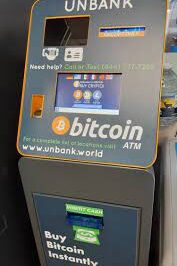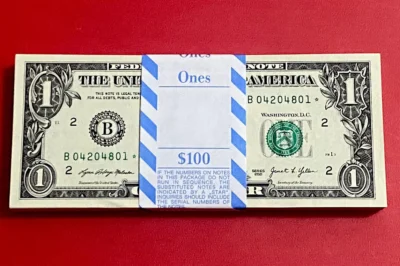
Introduction
In today’s fast-paced world, traditional banking may not always meet the diverse financial needs of every individual or community. Fortunately, the rise of alternative financial services, including “unbanks,” offers innovative solutions. This article delves into the concept of “unbank near me,” examining what it means, the services they offer, and their impact on local communities.
Understanding Unbanking
-
What is an Unbank?
i. Definition:
An unbank refers to non-traditional financial service providers that offer banking-like services without being formally recognized as banks.
ii. Characteristics:
Unbanks often operate through digital platforms or physical locations and cater to individuals who are underserved or excluded by traditional banking institutions.
iii. Examples:
Fintech startups, community-based credit unions, and microfinance institutions are some common types of unbanks.
The Need for Unbanks
2. Addressing Financial Exclusion
i. Access to Banking:
Many individuals, particularly in rural or low-income areas, lack access to traditional banking services due to factors like distance, income level, or credit history.
ii. Alternative Solutions:
Unbanks bridge this gap by providing accessible and affordable financial services to underserved communities, fostering financial inclusion.
Services Offered by Unbanks
3. Digital Banking Solutions
i. Mobile Banking:
Unbanks often leverage mobile technology to provide banking services, allowing users to manage their finances conveniently from their smartphones.
ii. Online Payments:
They facilitate online transactions, bill payments, and money transfers, enabling individuals to conduct financial transactions securely and efficiently.
-
Microfinance and Small Loans
i. Microcredit:
Unbanks offer small loans to entrepreneurs and small businesses who may struggle to access traditional financing, empowering them to start or expand their ventures.
ii. Flexible Terms:
Unlike conventional banks, unbanks may offer more flexible repayment terms and lower interest rates, making financial assistance more accessible to borrowers.
5. Community-Based Services
i. Local Outreach:
Unbanks often prioritize community engagement, establishing physical branches or pop-up locations in underserved neighborhoods to provide in-person assistance and support.
ii. Financial Education:
They offer financial literacy programs and workshops to empower individuals with the knowledge and skills to make informed financial decisions.
Impact of Unbanks
6. Economic Empowerment
i. Job Creation:
Unbanks contribute to local economies by creating employment opportunities, particularly in areas where traditional banking institutions are scarce.
ii. Entrepreneurship Support:
By providing access to capital and financial services, unbanks foster entrepreneurship and economic development within communities.
-
Social Inclusion
i. Serving Marginalized Groups:
Unbanks cater to marginalized populations, including immigrants, low-income families, and individuals with limited access to traditional banking, promoting social equity.
ii. Empowering Individuals:
They empower individuals to take control of their financial futures, breaking the cycle of poverty and dependency on informal financial channels.
Challenges and Opportunities
8. Regulatory Hurdles
i. Compliance Issues:
Unbanks often face regulatory challenges due to their unconventional nature, requiring them to navigate complex legal frameworks to operate legally.
ii. Regulatory Innovation:
Policymakers need to adopt more flexible regulatory approaches to accommodate the evolving landscape of alternative financial services while ensuring consumer protection.
-
Technological Advancements
i. Innovation Potential:
Technological advancements present opportunities for unbanks to enhance their service offerings, improve efficiency, and reach more underserved communities.
ii. Digital Inclusion:
Unbanks must prioritize digital inclusion efforts to ensure that all individuals, regardless of their technological proficiency, can access and benefit from their services.
Conclusion
As the financial services industry continues to evolve, the concept of “unbank near me” has emerged as a promising solution to address the needs of underserved communities. By offering accessible, affordable, and community-centric financial services, unbanks play a vital role in promoting financial inclusion, economic empowerment, and social equity. However, to maximize their impact, stakeholders must collaborate to overcome regulatory challenges, leverage technological innovations, and prioritize the needs of the communities they serve.
FAQ’s:
Q: What is an “unbank”?
A: An “unbank” refers to financial services or institutions that operate outside of traditional banking systems. These may include alternative financial services like check-cashing outlets, payday lenders, or mobile-based financial services.
Q: Why would someone look for an “unbank near me”?
A: Individuals may seek out “unbank” services if they lack access to traditional banking due to factors such as low income, lack of documentation, or poor credit history. They may also prefer the convenience or flexibility offered by alternative financial services.
Q: What services do “unbanks” offer?
A: “Unbanks” may offer a variety of financial services including check cashing, money transfers, bill payment, payday loans, prepaid debit cards, and more.
Q: Are “unbanks” regulated like traditional banks?
A: Regulations for “unbanks” vary depending on the type of service and jurisdiction. Some “unbanks” may be subject to regulatory oversight, while others may operate in less regulated environments.
Q: Are there risks associated with using “unbank” services?
A: Yes, there can be risks associated with “unbank” services including high fees, predatory lending practices, and lack of consumer protections. It’s important for individuals to carefully research and understand the terms and conditions before using these services.
Q: How can I find an “unbank near me”?
A: You can search online using keywords like “unbank near me” or “alternative financial services near me.” Additionally, you can ask for recommendations from community organizations or individuals who may be familiar with local “unbank” options.
Q: What should I consider before using an “unbank” service?
A: Before using an “unbank” service, consider factors such as fees, terms and conditions, reputation, and consumer reviews. It’s also a good idea to explore alternative options and compare offerings to ensure you’re getting the best deal.
Q: Are there alternatives to “unbank” services?
A: Yes, there are alternatives to “unbank” services including credit unions, community banks, and online banking options. These alternatives may offer lower fees, better interest rates, and more comprehensive financial services.









